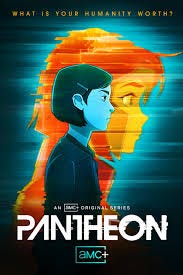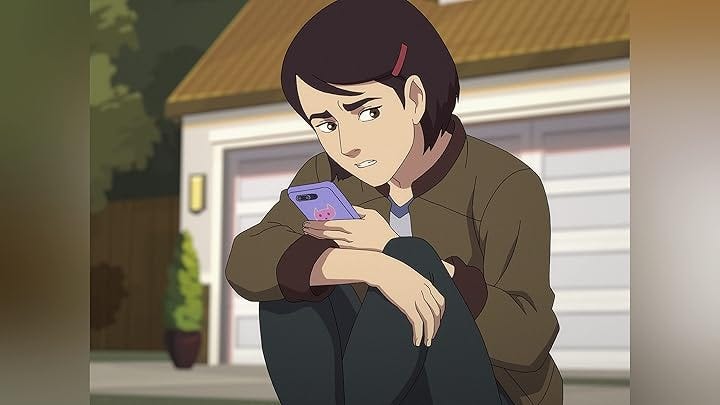AMC’s Pantheon1 is a masterful exploration of the future of human consciousness, technology, and the ethical quandaries surrounding the burgeoning field of Uploaded Intelligence (UI). Based on Ken Liu's short stories, this animated series combines a gripping narrative with stunning visuals, offering viewers an intellectually and emotionally resonant experience that lingers long after the final frame. At its core, Pantheon delves into the profound implications of digitizing human consciousness, tackling themes of identity, mortality, and the power dynamics inherent in technological evolution.
A Groundbreaking Narrative
The story follows Maddie Kim, a teenage girl whose late father, David, has had his consciousness "uploaded" by a shadowy tech company. This digitization—intended to preserve his intelligence and personality—raises existential questions about what it means to truly live. The narrative intertwines Maddie's journey with larger, global ramifications of UI technology as it begins to disrupt societal norms and power structures.
The series brilliantly balances personal drama with broader philosophical discussions. It asks viewers to consider whether an uploaded mind is merely a sophisticated program or a true continuation of human existence. This debate is brought to life through rich character arcs and the intricate relationships between the "uploaded" and the "living."
Fiction Meets Reality
While Pantheon is a work of speculative fiction, its themes resonate deeply with real-world technological advancements. Organizations like Neuralink, OpenAI, and Nectome are already pushing the boundaries of neurotechnology and mind preservation. Neuralink, for instance, is working on brain-computer interfaces to enhance human cognition and potentially preserve memories. Nectome controversially aims to develop technology that could store brain data indefinitely, suggesting a path toward "mind uploading." Meanwhile, AI systems like ChatGPT simulate human thought processes, edging closer to the goal of creating digital replicas of human intelligence.
These advancements bring Pantheon’s speculative world into sharper focus. The series mirrors current debates on the ethics of such technologies, including issues of consent, data ownership, and the moral implications of "immortalizing" human consciousness. Just as David Kim's uploaded mind becomes a pawn in corporate machinations, today’s tech giants face scrutiny over the potential misuse of AI and brain-interface technologies.
Ethical and Emotional Depth
What sets Pantheon apart is its ability to humanize these futuristic concepts. The show doesn’t just marvel at the possibilities of UI but probes the emotional and ethical dilemmas it creates. Is an uploaded consciousness truly "alive"? How do we grieve—or connect with—loved ones who exist only as data? Can such technology liberate humanity, or does it risk deepening societal divides? These questions are explored with nuance, making Pantheon a thought-provoking experience that transcends its sci-fi premise.
The series also raises alarms about the corporatization of UI, drawing parallels to real-world concerns over data privacy and the monopolization of AI research. In an age where companies like OpenAI partner with Microsoft and other corporate entities, Pantheon’s portrayal of a tech company wielding unchecked power serves as a timely warning.
A Must-Watch for the AI Era
Pantheon is not just a television series; it’s a cultural touchstone for our era of accelerating technological change. By blending a compelling narrative with cutting-edge scientific ideas, it offers a visionary look at what the future might hold—and the costs we may face along the way. The show is a testament to the power of speculative fiction to not only entertain but also provoke meaningful conversations about our collective future.
Whether you’re a fan of thought-provoking sci-fi, intrigued by the possibilities of Uploaded Intelligence, or simply looking for a deeply human story, Pantheon is an absolute must-watch. Its relevance to ongoing advancements in AI and neurotechnology makes it more than a series—it’s a mirror reflecting our present anxieties and aspirations about the human experience in an increasingly digital world.
Available on Netflix








